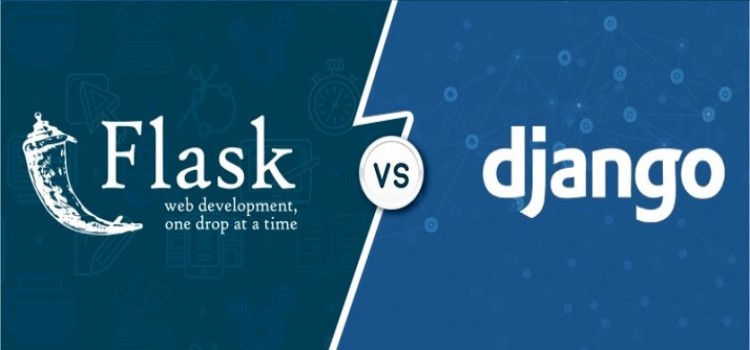What is the difference between django and flask?

This blog is meant for you if you are wondering whether to learn Flask or Django as part of your career growth. Both of the frameworks are developed in Python, so having experience in Python is a game-changer.
Now, to help you in making an informed decision between learning one of these two Python frameworks, we will discuss what Flask and Django are, their differences, advantages, and disadvantages, and finally, their use cases.
What are Flask and Django?
Django is an open-source web development framework written in Python that follows the Model:Template: View or the MTV pattern. Django was built to simplify the overall website development process. Focusing on reusable components, minimizing code, and rapid development strategies, it changes the way of traditional development.
On the other hand, Flask is a small and lightweight WSGI web application framework, written in Python. It is designed in a way to getting started with development quick and easy and with the ability to scale more complex applications.
Difference between Django and Flask?
To bring clarity among the two frameworks, it is vital to understand how both of them differ from each other. After knowing more about Django vs Flask, you can grasp what's more suited for your career.
Django has its ORM (object-relational mapping), which uses data models to allow developers to link the database tables with various classes in a programming language so they can work with models in the same way as database references. Flask does not have any of those because the Flask architecture is slightly different from the Django architecture. While Django is based on bundling everything, Flask takes a more modular approach.
Another difference between Django and Flask is that Django is equipped with a full-featured Model:View: Controller pattern to simplify the development process. Whereas, Flask is technically a microframework based on providing a basic set of tools for efficient web development without using any ORM.
Tabulated Difference between Flask and Django
| Django | Flask |
|---|---|
| It is a full-stack web development framework. | It is a WSGI based framework. |
| It has pre-built features in the form of packages. | It offers full flexibility to developers to create whatever they have in mind. |
| It has an in-built ORM. | It uses SQLAlchemy instead of ORMs. |
| It has batteries included design structure. | It has a minimalistic design structure. |
| It has a consistent working style. | It has a diversified working style. |
Pros and Cons
We shall be comparing how Django or Flask fare on parameters such as performance, security, packages, and use cases help you choose the one best suited for your career.
Performance Analysis
Between Django vs. Flask, performance plays a vital role in determining system functionality. A highly performing framework will result in a much more scalable, fast, and secure application. Weak or corrupt performance can lead to complexities in scaling and structural problems.
If we consider Django or Flask, both have good performance results and are used in high- traffic websites, thus making an impression on their effectiveness.
Packages Comparision
Flask is minimalistic and has almost none restrictions, which enables developers to implement precisely what they have in mind via external libraries. This makes Flask very flexible and extensible but also makes it more challenging to achieve the functionalities in mind.
On the other hand, Django has a vast number of in-built packages. This means developers can find a package to build and run the application with less effort, but anything outside the packages cannot be implemented.
Security Comparision
While comparing for security parameters between Flask or Django, we shall find that both of them have almost the same features. Such as:
Cross-site scripting (XSS): Django and Flask templates protect your application from the significant XSS attacks.
Cross-site request forgery (CSRF): Both Django and Flask have in-built protection against most types of CSRF attacks.
SQL injection: Django has querysets protected from SQL injection since the queries are developed using the parameterization method. This is also present in Flask.
Wrapping Up: Django vs. Flask
So, which framework have you decided to learn? As always, it depends on multiple factors. The choice to select between Flask or Django relies on the type of apps you wish to build.
Being full-featured, Django requires fewer decisions on your side. That means you could move a lot faster with the development. Although, if you are unhappy with the choices made by Django for you or maybe if you have a unique application requirement that limits the number of features you can take advantage of, you could look towards Flask.
